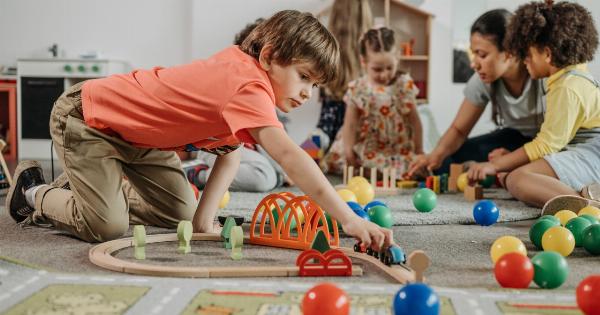Starting school is a big milestone for your toddler, as it’s their first real step into the wider world. Along with all the exciting experiences they’ll have, there will also come social challenges.
As parents, it’s important to equip your child with the necessary skills to navigate and manage these challenges. Here are some valuable tips to help your toddler handle social situations at school:.
1. Communication is Key
Encourage open communication with your toddler. Create a safe and supportive environment at home where they feel comfortable discussing their feelings and experiences.
Encourage them to talk about their day, their friends, and any challenges they may have faced. By doing so, you’ll be better able to understand their social struggles and provide appropriate guidance.
2. Teach Empathy
One of the most important qualities your toddler should learn is empathy. Help them understand different perspectives and how their actions can impact others.
Teach them to recognize and respond to emotions in order to build strong and positive relationships with their peers.
3. Role-Play Social Scenarios
Role-playing common social scenarios can be an effective way to prepare your toddler for real-life situations. Pretend to be another child and guide your toddler through various interactions they might encounter at school.
This will help them develop problem-solving skills and boost their confidence.
4. Encourage Sharing and Taking Turns
Sharing and taking turns are crucial social skills at school. Teach your toddler the importance of sharing toys, materials, and attention. Encourage them to take turns during playtime and be patient when waiting for their chance.
By practicing these skills at home, your toddler will be better prepared for social situations at school.
5. Foster Friendships
Help your toddler build strong friendships by arranging playdates with their classmates. Organize social activities where they can interact with other children in a relaxed setting.
This will not only help your child develop social skills but also create a support system and sense of belonging within their peer group.
6. Reinforce Positive Behavior
Acknowledge and praise your toddler for positive social behavior. Recognize their efforts to make friends, share, and cooperate with others.
By reinforcing positive behavior, you’ll motivate your child to continue behaving in a socially responsible manner.
7. Teach Conflict Resolution
Conflict is an inevitable part of any social setting, including school. Teach your toddler healthy ways to resolve conflicts, such as using words to express feelings and actively listening to others.
Encourage them to find solutions that are fair and considerate of everyone’s needs.
8. Be a Role Model
Children learn by observing and imitating their parents. Display positive social behavior yourself, such as being polite, respectful, and inclusive. Your toddler will look up to you as a role model and emulate the social skills they witness at home.
9. Talk to Teachers
Stay in touch with your toddler’s teachers to gain insights into their social interactions at school. Teachers can provide valuable feedback on your child’s behavior and any areas where they may need support.
Collaborate with them to address any social challenges your toddler may face.
10. Encourage Independence
As your child grows, encourage independence by allowing them to make choices and solve problems on their own. This will boost their confidence and ability to navigate social challenges independently.
However, always be available to offer guidance and support when needed.
Conclusion
Navigating social challenges at school can be overwhelming for toddlers, but with your support and guidance, they can develop the necessary skills to thrive socially.
By fostering open communication, teaching empathy, and role-playing social scenarios, you’ll help your child build crucial social skills and develop strong relationships with their peers. Remember to lead by example and collaborate with teachers to ensure your toddler’s social success at school.































